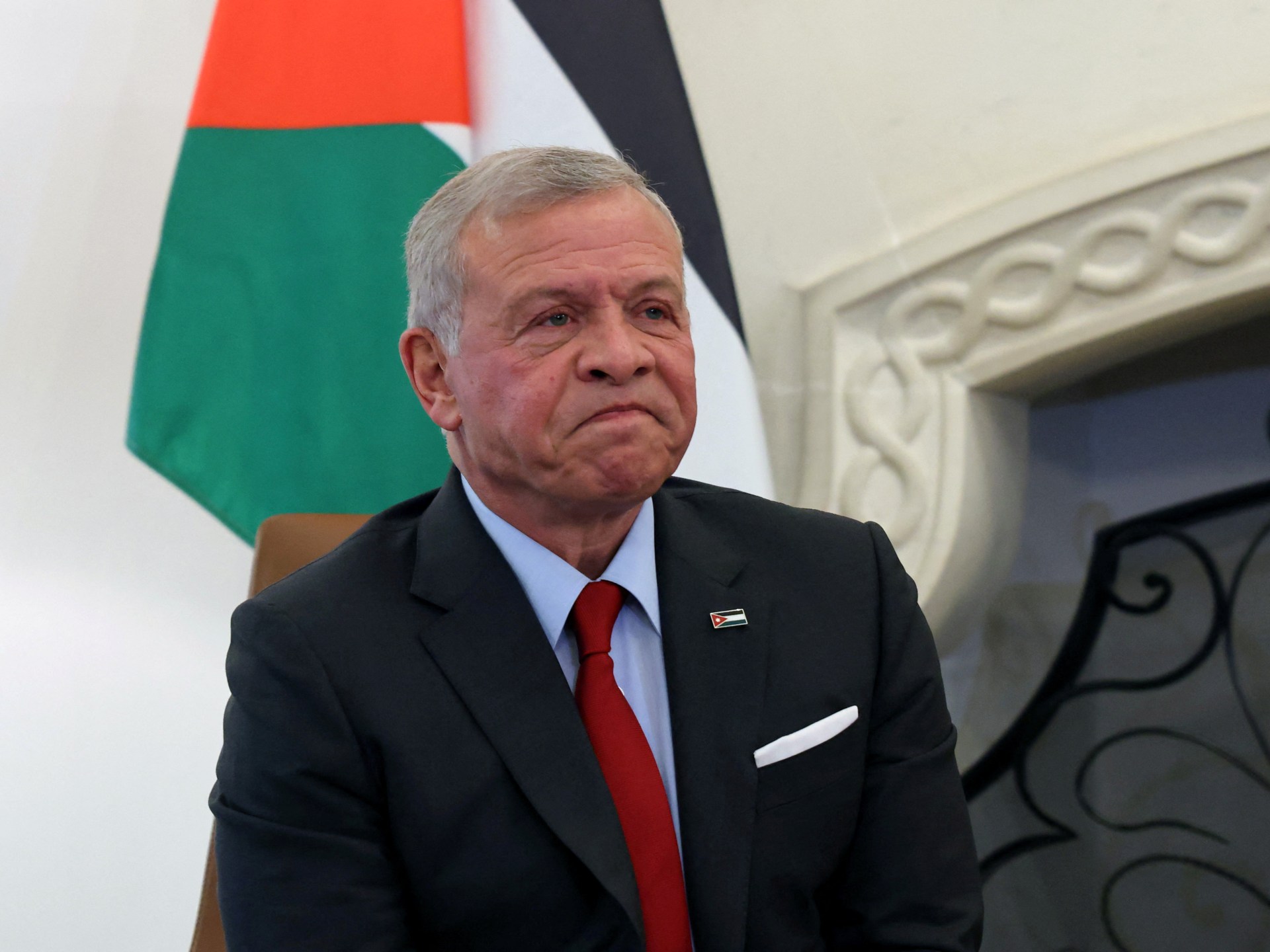King Abdullah II of Jordan will meet with US President Donald Trump in Washington, DC, following the latter’s repeated requests to accept Palestinians from Gaza for US control of the enclave.
Trump’s suggestion that Palestinians should be “removed” from the devastated Gaza Strip was made in a statement last week alongside smiling Israeli Prime Minister Benjamin Netanyahu. Trump has emphasised that, to his mind, the Palestinians would not return, making his ideas ethnic cleansing.
Jordan rejects the idea.
Trump’s comments were condemned not only by Jordan but also Egypt, which Trump also said should “take” Palestinians from Gaza, as well as Saudi Arabia, the United Arab Emirates and Qatar.
Trump claimed that Jordan and Egypt’s financial support would compel them.
“If they don’t agree, I would conceivably withhold aid”, Trump said on Monday, the day before meeting King Abdullah.
A red line
Jordan received $ 1.72 billion in US foreign aid in 2023, making it the fourth-highest recipient of the aid. However, according to analysts, accepting the displaced millions of Palestinians from Gaza would be a political non-starter for Amman.
“Accepting another wave of Palestinians into the country remains a red line”, Dima Toukan, a non-resident scholar at the Middle East Institute, told Al Jazeera. “The king will not budge on this matter”.
Since Israel’s war on Gaza in October 2023, King Abdullah, a steadfast US ally, has been under pressure both domestically and internationally.
Jordan’s prominence as a major regional ally for the US and a trade partner with Israel has angered its overwhelmingly pro-Palestinian population, which also includes at least 2 million Palestinian refugees and people of Palestinian descent.
Any acceptance of Trump’s ideas, which have been compared to the Nakba, in which 750, 000 Palestinians were ethnically cleansed by Zionist gangs to declare the state of Israel in 1948, would provoke domestic unrest and undermine the legitimacy of the monarchy.
Protests against Israel’s war on Gaza, which has killed more than 61, 700 Palestinians, have taken place in Amman for much of the last 16 months.
Jordanians took to the streets once more on Friday to protest Trump’s decision to move Palestinians from Gaza to Jordan despite the ceasefire between Israel and Hamas.
During the protests on Friday, Jordanians were forthcoming with their messages, according to Toukan.
Three Israeli border guards were killed in an attack by a Jordanian in September, prompting angst to become more unstable.
According to Sean Yom, an associate professor of political science at Temple University, “the king is conveying a very urgent message that Trump’s disastrous ‘plan’ is effectively going to destroy Jordan.”
“The displacement/relocation idea broaches the existential fear of all Jordanians – across the board, from monarchy to society – that Israel will annex all of Palestine, and that resource-poor, socially-restive Jordan will be left picking up the pieces”.
Aid troubles
Jordan must weigh in on Trump’s comments with other factors, though.
The monarchy was under pressure because of economic struggles that some of the country’s most powerful tribes found disenchanting even before Israel’s war on Gaza.
After he announced on the day of his inauguration that the majority of the US’s commitments to global aid would be frozen for 90 days, Jordan is already getting a taste of Trump’s potential.
Some Jordanis claim that Trump’s decision affected their jobs or negatively impacted their businesses. Notable is that, despite receiving exceptions for the foreign aid freeze, Jordan’s position as a steadfast regional ally did not protect it.
“Jordan is directly dependent upon US aid and security assistance”, Yom said. “The kingdom is vulnerable to geopolitical blackmail”.
The Hashemite Kingdom has been a key ally of the US ever since Jordan and Israel signed the Wadi Araba peace agreement in 1994, frequently crossing party lines and administrations.
However, according to analysts, Trump’s influence may cause Jordan and other regional allies to begin betting.
Jordan, Egypt and other Gulf states “are probably looking to Russia and China”, Geoffrey Hughes, author of the book Kinship, Islam and the Politics of Marriage in Jordan: Affection and Mercy, told Al Jazeera.
According to the Trump administration, “a lot will depend on how much that scares it and how reliable any threat of defection or hedging appears in light of the signals coming from Moscow and Beijing.”
Troops as a stick
Jordan would need to find sufficient funding from other countries to bridge a billion-dollar gap in order to continue operating normally. The likelihood of paying the full amount was unwarranted, according to analysts.
But Jordan may have one more means of leverage.
The US forces’ stationing in Jordan is “the biggest thing to watch,” Hughes said.
About 3, 000 US troops are stationed in Jordan, a largely focused effort to combat ISIL (ISIS) in recent years, and they are also a part of a wider network of US troops that have supposedly been deployed there for the past ten years in Syria and Iraq.
And yet, with Trump in power, even that leverage may not be as important as it once seemed.
The US president has spoken about removing US troops from Syria and Iraq from his predecessors, who emphasized a US presence there.
Some people wonder if a US presence in Jordan would be a priority after Trump reiterates his intention to withdraw US troops from Syria in late January.
It could also alter the Jordan-Israel relationship, giving Israel an excuse to intervene directly with perceived “security threats” inside Jordanian territory.
Source: Aljazeera

Leave a Reply